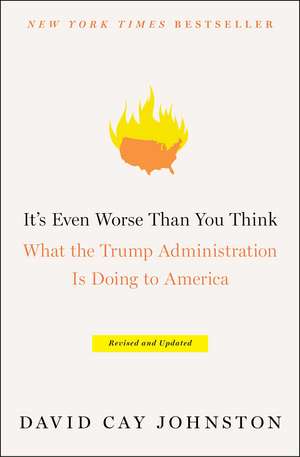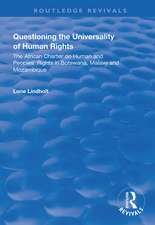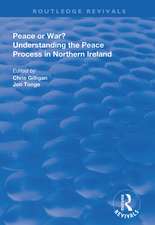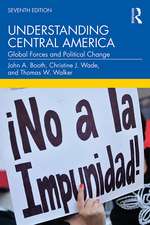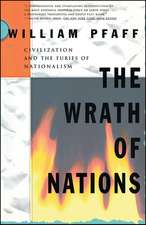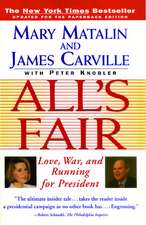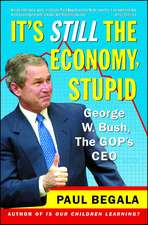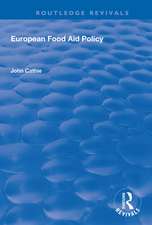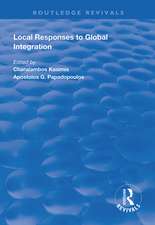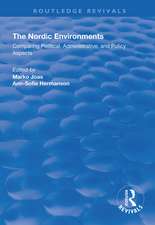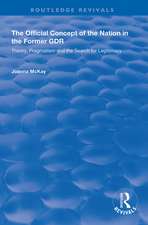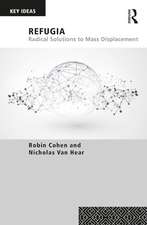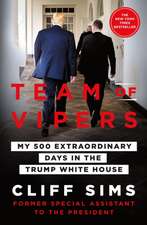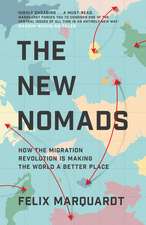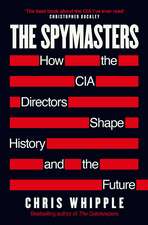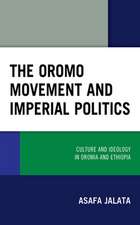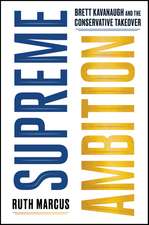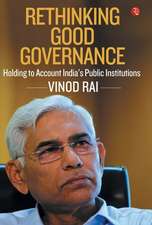It's Even Worse Than You Think: What the Trump Administration Is Doing to America
Autor David Cay Johnstonen Limba Engleză Paperback – 3 apr 2019
New York Times bestselling author and longtime Trump observer David Cay Johnston shines a light on the political termites who have infested our government under the Trump administration, destroying it from within and compromising our jobs, safety, finances, and more.
In It’s Even Worse Than You Think, Johnston exposes shocking details about the Mexican border wall, and how American consumers will end up paying for it, if it ever gets built; climate change, and all about Scott Pruitt who spent much of his career trying to destroy the agency he now heads; stocking—not draining—the swamp, despite his promise to do the opposite, Trump has filled his cabinet with millionaires and billionaires; and the Kleptocracy, where Donald Jr. and Eric run an eyes-wide-open blind trust of Trump holdings to avoid the appearance of conflict of interest—but not the reality.
With story after story, It’s Even Worse Than You Think "diagnoses the Trump administration as a…government by the least qualified and most venal among us” (The Washington Post). This is “a momentously thorough account of President Trump’s alarmingly chaotic first year in office…a precise and fiery indictment of an unstable, unethical president that concludes with a call for us to defend our democracy” (Booklist) and is “urgent, necessary reading” (Kirkus Reviews).
Preț: 97.74 lei
Nou
Puncte Express: 147
Preț estimativ în valută:
18.71€ • 19.45$ • 15.65£
18.71€ • 19.45$ • 15.65£
Carte disponibilă
Livrare economică 21 februarie-07 martie
Preluare comenzi: 021 569.72.76
Specificații
ISBN-13: 9781501174155
ISBN-10: 1501174150
Pagini: 352
Dimensiuni: 140 x 213 x 25 mm
Greutate: 0.27 kg
Editura: Simon&Schuster
Colecția Simon & Schuster
ISBN-10: 1501174150
Pagini: 352
Dimensiuni: 140 x 213 x 25 mm
Greutate: 0.27 kg
Editura: Simon&Schuster
Colecția Simon & Schuster
Notă biografică
David Cay Johnston is a Pulitzer Prize–winning investigative reporter and bestselling author of The Making of Donald Trump and It’s Even Worse Than You Think. He has lectured on economics, journalism, and tax policy on every continent except Antarctica and is a former president of Investigative Reporters & Editors (IRE). Johnston has been a frequent guest on MSNBC, CNN, the BBC, ABC World News Tonight, Democracy Now!, and NPR’s Morning Edition, among other shows, and was a consultant for the Netflix series House of Cards.
Extras
It’s Even Worse Than You Think
A single factor defines Donald Trump’s presidency, making it unlike the forty-four administrations before. Be they great, middling, or corrupt, the presidents past all shared a trait missing in the Trump presidency.
In 1789, when America began its experiment in the then radical idea of self-government, George Washington set a tone that he hoped would endure among all those who in the future would be temporarily imbued with the powers of the presidency, avoiding any hint of the debauchery and high-handedness of European monarchs whose claim of a God-given right to reign was challenged by the new nation. When Washington desired a piece of land the nascent federal government owned, he did what everyone else who wanted that real estate did. Washington submitted a bid, the winning one, as it turned out.
Thomas Jefferson, who in the Declaration of Independence gave us the lofty ideal that all men are created equal even as he owned slaves to the end of his life, pointed the nation west toward its manifest destiny with the Louisiana Purchase and applied the principles of scientific thought as he strived for the best policies to benefit the nation and its people.
Abraham Lincoln freed the slaves, whom the Confederacy leaders declared that the Christian God commanded them to own, before the shock of his assassination bequeathed us three amendments expanding our Constitutional rights to all.
Theodore Roosevelt, in a time of concentrated wealth the world had never seen amid desperate want, railed against the rich not for having money, but for abusing their fortunate status. He used government to rein in the worst impulses of the “malefactors of wealth.”
Franklin D. Roosevelt overcame the handicap of a patrician upbringing to recognize the need to recover from the nation’s worst economic crisis with lasting economic reforms before preparing the people to prosecute a war against the murderous Nazi racists and their allies.
Dwight Eisenhower saw a nation pregnant with economic opportunity and gave it stretch marks in the 55,000 miles of Interstate highways while sending in the 101st Airborne Division to protect the first African American children going to Little Rock’s Central High School.
John F. Kennedy implored us to “ask not what your country can do for you, ask what you can do for your country” and set us on a trajectory toward the moon.
Lyndon Johnson overcame the racist environment of his youth to marshal votes for the Civil Rights Act, the Voting Rights Act, as well as Medicare so that the disabled and elderly would not suffer needlessly and die early, even as he lost his way in Vietnam.
Richard Nixon signed the Clean Air and Clean Water Acts, created the Environmental Protection Agency, and came out for national health care even as his many crimes enveloped him, until at long last he showed his patriotic respect for our Constitution by resigning.
Ronald Reagan, certain that the New Deal was holding back a richer future, persuaded the nation for better or worse to move in a new direction that, while Reagan could not have anticipated this, set us on the path to the Trump presidency.
Even the worst of the presidents shared one common trait vital to democracy that is missing from the Trump administration.
Chester Arthur came from New York political corruption, but when the assassination of James Garfield elevated Arthur to president, he told his cronies never to darken the White House door. Unwilling to sully the office he unexpectedly occupied, Arthur began professionalizing the federal workforce, reducing patronage by persuading Congress to enact the Pendleton Civil Service Reform Act.
Warren G. Harding is remembered for the Teapot Dome scandal that benefited his crooked friends in business, but he also promoted nascent enterprises that would increase national wealth and opportunity, including aviation, cars and paved roads for them to drive on, and radio broadcasting.
John Adams came closest to Trump (and Nixon) with the four Alien and Sedition Acts that restricted immigration and gave him a path to prosecute political enemies—as Trump says he wants to do. One of those four laws remained on the books long enough to give legal cover to the internment of Japanese Americans in 1942. Still, the Adams administration was free of scandal, managed government finances prudently, and launched the modern Navy.
What distinguishes these American presidents from Trump? Some did great deeds and inspired great ambitions among the people, while others got lost in the small stuff. Some were reformers, others determined guardians of the status quo. Some spoke eloquently, lending grace to civic debate, while others were coarse, even verbal clods. Some, like Barack Obama, were personally scrupulous, their administrations free of scandal, while others, like Bill Clinton, couldn’t control their impulses.
What they had in common was that their administrations were about America and its people. Some presidents made America great, while others tried and missed the mark. Some took great political risks to move the country forward, as when Lyndon Johnson could not abide the oppression of fellow citizens a century after the Civil War just because of the color of their skin. Johnson knew his actions would cost Democrats the South for generations, but did what he thought was in the nation’s best interests even if it would harm his party.
We can look back at these presidents and applaud or be appalled by their conduct. But we must always take care to judge them by the standards of their day, not by conditions today. Viewed properly in the context of their times, the last forty-four presidents all pursued policies that they believed would make for a better America tomorrow.
The Trump presidency is about Trump. Period. Full stop.
He says so himself all the time, but because he mixes it in with lines about how he loves everyone and what a terrific job he will do, millions of Americans believe he is at one with them even though he is not even at one with himself. But listen skeptically and carefully and it becomes clear that Trump boasts that his term in office is all about him, about how great he is, about how large the crowds are, about his negotiating skills, about his authority to start a nuclear war, as he pledged on the campaign trail that he would. Trump is desperate for others to fill the void inside himself. He has a sad need for attention and, preferably, public adoration.
There is so much work to do as president that lack of sleep and quick aging have become hallmarks of the presidency. Trump is not one to stay up past midnight reading policy memos and calling on the vast array of government experts to ask their help in understanding difficult issues of economics, geopolitics, science, trade, or anything else. Instead the White House staff has confirmed that he spends hours each day in front of a television, the remote control flicking from one channel to another so Trump can see the latest news about himself. When he doesn’t like what he sees, he sends out nastygram tweets, often in the wee hours before dawn.
Tony Schwartz, the writer of Trump’s bestselling book The Art of the Deal, understands these motivations. Schwartz told the documentary filmmaker Libby Handros that the simple fact is that “Donald Trump would be a very unhappy man if no one paid attention to him.”
Trump has also lived a life of thumbing his nose at conventions and law enforcement, learning lessons as a boy from his father, Fred, whose business partner was an associate of the Gambino and Genovese crime families. He has long been in deep with mobsters, domestic and foreign, along with corrupt union bosses and assorted swindlers. Trump even spent years deeply entangled with a major international drug trafficker who, like many of the others, enjoyed their mutually lucrative arrangements.
This life experience helps explain why he and his staff often talk as if the position of president is dictatorial, a profoundly anti-American notion. Instead of a president of specific duties and constitutionally limited authority, Trump and his aides talk as if he is an absolute ruler, or should be, to whom all must bend the knee. Indeed, one of his longest and closest aides said exactly that. Omarosa Manigault, who met Trump as a contestant on his show The Apprentice and became a repeat guest over the years, was the Trump campaign’s director of African American outreach.
“Every critic, every detractor, will have to bow down to President Trump,” Manigault told the documentary television program Frontline. “It’s everyone who’s ever doubted Donald, whoever disagreed, whoever challenged him. It is the ultimate revenge to become the most powerful man in the universe,” she said. Instead of rebuking Omarosa, Trump made her director of the White House Office of Public Liaison, a post that means she deals with special interest groups.
He also brought to the White House his philosophy of life, a philosophy totally at odds with political compromise, of appreciating that others in office have different interests and needs in their home districts. Over many years and in many forums Trump has laid out his life philosophy in some detail. And his behavior is consistent with his stated views on life.
Trump himself has reduced his life philosophy to a single word—revenge.
“I love getting even,” Trump advised in one of his books, adding “go for the jugular, attack them in spades!” Repeatedly he has said in talks and in his books that destroying the lives of people he considers disloyal gives him pleasure. That Trump does not recognize ethical limits on conduct, the propriety George Washington modeled, derives from his fundamental character, narcissism. But unlike the mythic figure who came to a tragic end drowning in the pool that mirrored his visage, Trump’s narcissism has so far helped him get to where he has for decades said he belonged—in the White House.
Over many years in paid public appearances and in books bearing his name on the cover, Trump rejected the idea of turning the other cheek, saying that those who do are “fools” and “idiots.” This philosophy was ignored by the many pastors who endorsed Trump and accepted his statement that he is a Christian. That is worth pondering because revenge is explicitly rejected by Jesus and runs counter to the whole theme of the New Testament. The Golden Rule has no place in the life of Donald Trump. Revenge is the philosophy of dictators and mob bosses everywhere and always, used to keep others in line with threats of economic ruin, violence, or worse. That Trump by his silence gave tacit approval to what Omarosa said about Americans bowing down and that he then put her on the government payroll reinforces the facts showing that the Trump presidency is unlike anything that came before, a presidency built on open public contempt for Constitutional principles. As president, he brought into the White House a host of people with fringe ideas, some of them Islamophobes, some white nationalists, some xenophobes, and many of them sharing Trump’s ignorance of science. As we shall explore ahead, many of them had no qualifications whatsoever for the posts he appointed them to; he just called them “terrific.” For those posts that required Senate confirmation, he got the advice and consent of a majority of senators despite testimony revealing some of them as modern know-nothings and one of them being determined to destroy the agency he now runs.
From ambassadorships to agency heads, Trump has left the vast majority of the nearly four thousand positions under his control vacant. But the long-term concern involves the many appointees, known as the politicals, who seldom make the news. Many of these jobs were filled at the behest of people around Trump, as happens in all administrations. But this time is different.
The Trump administration deposited political termites throughout the structure of our government. Their task, in the words of Trump’s first White House strategic adviser, Steve Bannon, is the “deconstruction of the administrative state.” By that, Bannon has explained, he means to undo the tax, trade, regulatory, and other means by which the federal government carries out its duties. The endgame is not just a smaller government, which Republicans always say they want, but a weak government, a government that looks first after the best-off in the land, not those most in need of a helping hand in the form of a sound education, clean water, and the other basics of a healthy society in the twenty-first century. These termites operate out of sight, in some cases in extraordinary secrecy, to bully or scare scientists into leaving, remove from public access important public records, and for all anyone knows destroy many of them. Such records are often necessary to enforce environmental, worker safety, and other laws.
The administration, however, has wrought one significant change to expand equality in America. Thanks to Trump the mentally ill now have virtually the same gun rights as the sane.
* * *
This book is my attempt to examine the Trump administration’s policies in a cohesive narrative, the opposite of Trump’s incoherent statements, which in polite company are called word salad. Much of what follows has been reported glancingly in the news, some of it not reported at all.
This is an administration that actively looks for the least qualified and the most aggressive termites to eat away at the structure of government.
To overhaul the federal Department of Education, Trump chose an heiress with no background in education theory or administration, but an intense desire to promote schooling that is corporate run and free to be religious. To run Housing and Urban Development, he picked a retired surgeon with no administrative experience, no housing expertise, and who has said that the Egyptian pyramids were not tombs for dead pharaohs but granaries. At Treasury, Trump chose for secretary a Wall Street banker who made much of his fortune aggressively foreclosing on homeowners. To run the Environmental Protection Agency, he chose a lawyer who had vowed to destroy it.
After firing an FBI director who would not pledge personal loyalty to him and close part of the Russia investigation, Trump appointed as FBI director a lawyer who earned more than $17 million the previous year defending corrupt banks involved in money laundering and other white-collar crimes the FBI is known to investigate.
For surgeon general, a job where a principal duty is to persuade Americans to not take up smoking, Trump named a physician who owned tobacco company stocks.
So many facts from the Trump administration are unknown or little known. That is because while Trump rails against honest reporting that he calls “fake news,” he benefits from organizations that traffic in made-up stories, twisted facts, or simple silence on matters they cannot explain away.
A glimpse of this showed up in August when pollster Peter D. Hart put a dozen people of varying political views in a room in Pittsburgh. All said they were embarrassed by Trump, but those who voted for him stood by him, at least for the moment. Most interesting was what Hart discovered when he asked the focus group about Robert Mueller, the special prosecutor heading the Russia investigation that Trump has been so eager to stop. Four people, all Trump voters, had no idea who he was. Few things benefit Trump more than ignorance.
The Hart focus group reminded us of what every con artist knows: people see what they want to see, hear what they want to hear, believe what they want to believe, and let their hopes and wishes vanquish their skepticism. Unless and until some fact they cannot reconcile slaps them hard in the face, the con’s marks will keep seeing the world through the credulous and distorted lens they fashioned for themselves.
His entire life Trump has been a con artist. In The Art of the Deal he brags about deceptions that enriched him. He has boasted about not paying banks that loaned him billions of dollars. He conned thousands of people desperate to learn what Trump said were the secrets of his success into paying up to $35,000 to attend Trump University. In a promotional video, Trump said his university would provide a better education than the finest business schools with a faculty he personally picked. Lawsuits forced Trump’s testimony and documents that showed that there were no secrets he shared with the “students.” The faculty never met Trump. These professors turned out to be fast-food managers and others with no experience in real estate, the focus of the “university.” Because of the lawsuits, Trump paid back $25 million to the people he conned so the scam would not follow him into the White House.
To con a wider audience, Trump relies on faux news organizations. People who get their news from these sources believe, reasonably, that he is under siege for doing the right thing.
Many millions of Americans, including about half of Republicans according to many polls, believe that Trump is their champion and is being railroaded by Democrats who collude with the journalists whom Trump calls the “enemies of the people.” The more extreme among them say that the Democrats want to destroy America by imposing Sharia law. That crazy beliefs have currency in the Trump era provides great fodder for television comedians. The jokes, however accurate in fact and skewering in tone, amuse those who have not bought into Trump, but only strengthen the resolve of those who project onto Trump their hopes and dreams. To those unaware of the factual basis for the humor, it comes across as mean, dishonest, and despicable.
In this context consider the plight of congressional Republicans, some of whom say in private Trump is unsuited for the presidency, as ignorant as he is unstable. To go against Trump when half of their constituents believe he is a demigod or at least their last best hope for a better future is to risk political suicide. And they know that if they do publicly disagree with Trump they can expect a primary challenge that may well end their careers. Trump knows that to remain in power he must cow the Republicans so they dare not say the word impeachment.
Many of those who believe in Trump come from the 90 percent whose economic fortunes dwindled over the last half century, turning up only starting in 2013, while the richest of the rich have built fortunes that even John D. Rockefeller, Andrew Carnegie, and J. P. Morgan Jr. could not have imagined. The vast majority suffer real economic pain, which I documented in a series of books that revealed government policies few knew about that stealthily take money from them and transfer it to the already very rich. Their very real grievances include the fact that policies embraced by both political parties ignored their plight or made it worse. In 2012 the average income that the bottom 90 percent reported on tax returns was slightly less, after inflation, than what the same demographic reported in 1967.
A major source of Trump’s influence comes from people who distrust respected news organizations and instead rely on those that have been shown to have little regard for fact, especially when it comes to Trump. To discourage the faithful from consulting the work of journalists that Trump cannot dispute, he simply damns them all with the term “fake news” so his supporters will not even bother.
The biggest influence is Rupert Murdoch’s Fox News, its faux daytime newscasts and evening entertainment shows propaganda for Trump. What is reported is often one-sided, inaccurate, or just made up. Until not long before he was fired for sexual harassment, Fox president Roger Ailes talked daily with Trump.
There is also the fast-growing website Breitbart, which promotes racially charged stories and whose chairman served as Trump’s strategic director in the White House. Trump has told tales that can be found at racist websites like the neo-Nazi Daily Stormer. Trump has at times spread made-up news from Sputnik, a Russian propaganda operation, without citing his source. But troubling as it is that any American leader would spread disinformation from a hostile foreign power, that is not the most disturbing example of how Trump consumes fake news. Trump has cited as reliable, and has appeared as a guest on, an Internet show called InfoWars. There host Alex Jones rants at length about such vital issues of the day as his discovery that “interdimensional beings” secretly control the American elites. Jones says not to worry, that because of his courageous reporting the hidden truth about these creatures is, finally, starting to come out. We will examine the role all this plays in the Trump era.
What has happened to American democracy has perplexed and stunned people in many countries who looked upon America, flaws and all, as a beacon of hope and a society interested in justice. Even former president George W. Bush has complained about the crudeness of public discourse today. Trump’s victory also gave cause for a party in the Kremlin—and when word of this secret Kremlin victory party got out, the government-controlled television news ran video of one of two senior Russian officials being seized in meetings, bags thrown over their heads, their whereabouts unknown ever since.
In June 2016 Hillary Clinton, in an address on foreign policy, said, “Moscow and Beijing are deeply envious of our alliances around the world, because they have nothing to match them. They’d love for us to elect a President who would jeopardize that source of strength. If Donald gets his way, they’ll be celebrating in the Kremlin. We cannot let that happen.” The Chinese have seized upon Trump’s erratic behavior and his cancellation of the Trans-Pacific Partnership to promote their own trade deal, orienting fifteen Pacific Rim economies and India away from Washington and toward Beijing.
* * *
There is much more, so let’s get to it.
The Trump Factor
A single factor defines Donald Trump’s presidency, making it unlike the forty-four administrations before. Be they great, middling, or corrupt, the presidents past all shared a trait missing in the Trump presidency.
In 1789, when America began its experiment in the then radical idea of self-government, George Washington set a tone that he hoped would endure among all those who in the future would be temporarily imbued with the powers of the presidency, avoiding any hint of the debauchery and high-handedness of European monarchs whose claim of a God-given right to reign was challenged by the new nation. When Washington desired a piece of land the nascent federal government owned, he did what everyone else who wanted that real estate did. Washington submitted a bid, the winning one, as it turned out.
Thomas Jefferson, who in the Declaration of Independence gave us the lofty ideal that all men are created equal even as he owned slaves to the end of his life, pointed the nation west toward its manifest destiny with the Louisiana Purchase and applied the principles of scientific thought as he strived for the best policies to benefit the nation and its people.
Abraham Lincoln freed the slaves, whom the Confederacy leaders declared that the Christian God commanded them to own, before the shock of his assassination bequeathed us three amendments expanding our Constitutional rights to all.
Theodore Roosevelt, in a time of concentrated wealth the world had never seen amid desperate want, railed against the rich not for having money, but for abusing their fortunate status. He used government to rein in the worst impulses of the “malefactors of wealth.”
Franklin D. Roosevelt overcame the handicap of a patrician upbringing to recognize the need to recover from the nation’s worst economic crisis with lasting economic reforms before preparing the people to prosecute a war against the murderous Nazi racists and their allies.
Dwight Eisenhower saw a nation pregnant with economic opportunity and gave it stretch marks in the 55,000 miles of Interstate highways while sending in the 101st Airborne Division to protect the first African American children going to Little Rock’s Central High School.
John F. Kennedy implored us to “ask not what your country can do for you, ask what you can do for your country” and set us on a trajectory toward the moon.
Lyndon Johnson overcame the racist environment of his youth to marshal votes for the Civil Rights Act, the Voting Rights Act, as well as Medicare so that the disabled and elderly would not suffer needlessly and die early, even as he lost his way in Vietnam.
Richard Nixon signed the Clean Air and Clean Water Acts, created the Environmental Protection Agency, and came out for national health care even as his many crimes enveloped him, until at long last he showed his patriotic respect for our Constitution by resigning.
Ronald Reagan, certain that the New Deal was holding back a richer future, persuaded the nation for better or worse to move in a new direction that, while Reagan could not have anticipated this, set us on the path to the Trump presidency.
Even the worst of the presidents shared one common trait vital to democracy that is missing from the Trump administration.
Chester Arthur came from New York political corruption, but when the assassination of James Garfield elevated Arthur to president, he told his cronies never to darken the White House door. Unwilling to sully the office he unexpectedly occupied, Arthur began professionalizing the federal workforce, reducing patronage by persuading Congress to enact the Pendleton Civil Service Reform Act.
Warren G. Harding is remembered for the Teapot Dome scandal that benefited his crooked friends in business, but he also promoted nascent enterprises that would increase national wealth and opportunity, including aviation, cars and paved roads for them to drive on, and radio broadcasting.
John Adams came closest to Trump (and Nixon) with the four Alien and Sedition Acts that restricted immigration and gave him a path to prosecute political enemies—as Trump says he wants to do. One of those four laws remained on the books long enough to give legal cover to the internment of Japanese Americans in 1942. Still, the Adams administration was free of scandal, managed government finances prudently, and launched the modern Navy.
What distinguishes these American presidents from Trump? Some did great deeds and inspired great ambitions among the people, while others got lost in the small stuff. Some were reformers, others determined guardians of the status quo. Some spoke eloquently, lending grace to civic debate, while others were coarse, even verbal clods. Some, like Barack Obama, were personally scrupulous, their administrations free of scandal, while others, like Bill Clinton, couldn’t control their impulses.
What they had in common was that their administrations were about America and its people. Some presidents made America great, while others tried and missed the mark. Some took great political risks to move the country forward, as when Lyndon Johnson could not abide the oppression of fellow citizens a century after the Civil War just because of the color of their skin. Johnson knew his actions would cost Democrats the South for generations, but did what he thought was in the nation’s best interests even if it would harm his party.
We can look back at these presidents and applaud or be appalled by their conduct. But we must always take care to judge them by the standards of their day, not by conditions today. Viewed properly in the context of their times, the last forty-four presidents all pursued policies that they believed would make for a better America tomorrow.
The Trump presidency is about Trump. Period. Full stop.
He says so himself all the time, but because he mixes it in with lines about how he loves everyone and what a terrific job he will do, millions of Americans believe he is at one with them even though he is not even at one with himself. But listen skeptically and carefully and it becomes clear that Trump boasts that his term in office is all about him, about how great he is, about how large the crowds are, about his negotiating skills, about his authority to start a nuclear war, as he pledged on the campaign trail that he would. Trump is desperate for others to fill the void inside himself. He has a sad need for attention and, preferably, public adoration.
There is so much work to do as president that lack of sleep and quick aging have become hallmarks of the presidency. Trump is not one to stay up past midnight reading policy memos and calling on the vast array of government experts to ask their help in understanding difficult issues of economics, geopolitics, science, trade, or anything else. Instead the White House staff has confirmed that he spends hours each day in front of a television, the remote control flicking from one channel to another so Trump can see the latest news about himself. When he doesn’t like what he sees, he sends out nastygram tweets, often in the wee hours before dawn.
Tony Schwartz, the writer of Trump’s bestselling book The Art of the Deal, understands these motivations. Schwartz told the documentary filmmaker Libby Handros that the simple fact is that “Donald Trump would be a very unhappy man if no one paid attention to him.”
Trump has also lived a life of thumbing his nose at conventions and law enforcement, learning lessons as a boy from his father, Fred, whose business partner was an associate of the Gambino and Genovese crime families. He has long been in deep with mobsters, domestic and foreign, along with corrupt union bosses and assorted swindlers. Trump even spent years deeply entangled with a major international drug trafficker who, like many of the others, enjoyed their mutually lucrative arrangements.
This life experience helps explain why he and his staff often talk as if the position of president is dictatorial, a profoundly anti-American notion. Instead of a president of specific duties and constitutionally limited authority, Trump and his aides talk as if he is an absolute ruler, or should be, to whom all must bend the knee. Indeed, one of his longest and closest aides said exactly that. Omarosa Manigault, who met Trump as a contestant on his show The Apprentice and became a repeat guest over the years, was the Trump campaign’s director of African American outreach.
“Every critic, every detractor, will have to bow down to President Trump,” Manigault told the documentary television program Frontline. “It’s everyone who’s ever doubted Donald, whoever disagreed, whoever challenged him. It is the ultimate revenge to become the most powerful man in the universe,” she said. Instead of rebuking Omarosa, Trump made her director of the White House Office of Public Liaison, a post that means she deals with special interest groups.
He also brought to the White House his philosophy of life, a philosophy totally at odds with political compromise, of appreciating that others in office have different interests and needs in their home districts. Over many years and in many forums Trump has laid out his life philosophy in some detail. And his behavior is consistent with his stated views on life.
Trump himself has reduced his life philosophy to a single word—revenge.
“I love getting even,” Trump advised in one of his books, adding “go for the jugular, attack them in spades!” Repeatedly he has said in talks and in his books that destroying the lives of people he considers disloyal gives him pleasure. That Trump does not recognize ethical limits on conduct, the propriety George Washington modeled, derives from his fundamental character, narcissism. But unlike the mythic figure who came to a tragic end drowning in the pool that mirrored his visage, Trump’s narcissism has so far helped him get to where he has for decades said he belonged—in the White House.
Over many years in paid public appearances and in books bearing his name on the cover, Trump rejected the idea of turning the other cheek, saying that those who do are “fools” and “idiots.” This philosophy was ignored by the many pastors who endorsed Trump and accepted his statement that he is a Christian. That is worth pondering because revenge is explicitly rejected by Jesus and runs counter to the whole theme of the New Testament. The Golden Rule has no place in the life of Donald Trump. Revenge is the philosophy of dictators and mob bosses everywhere and always, used to keep others in line with threats of economic ruin, violence, or worse. That Trump by his silence gave tacit approval to what Omarosa said about Americans bowing down and that he then put her on the government payroll reinforces the facts showing that the Trump presidency is unlike anything that came before, a presidency built on open public contempt for Constitutional principles. As president, he brought into the White House a host of people with fringe ideas, some of them Islamophobes, some white nationalists, some xenophobes, and many of them sharing Trump’s ignorance of science. As we shall explore ahead, many of them had no qualifications whatsoever for the posts he appointed them to; he just called them “terrific.” For those posts that required Senate confirmation, he got the advice and consent of a majority of senators despite testimony revealing some of them as modern know-nothings and one of them being determined to destroy the agency he now runs.
From ambassadorships to agency heads, Trump has left the vast majority of the nearly four thousand positions under his control vacant. But the long-term concern involves the many appointees, known as the politicals, who seldom make the news. Many of these jobs were filled at the behest of people around Trump, as happens in all administrations. But this time is different.
The Trump administration deposited political termites throughout the structure of our government. Their task, in the words of Trump’s first White House strategic adviser, Steve Bannon, is the “deconstruction of the administrative state.” By that, Bannon has explained, he means to undo the tax, trade, regulatory, and other means by which the federal government carries out its duties. The endgame is not just a smaller government, which Republicans always say they want, but a weak government, a government that looks first after the best-off in the land, not those most in need of a helping hand in the form of a sound education, clean water, and the other basics of a healthy society in the twenty-first century. These termites operate out of sight, in some cases in extraordinary secrecy, to bully or scare scientists into leaving, remove from public access important public records, and for all anyone knows destroy many of them. Such records are often necessary to enforce environmental, worker safety, and other laws.
The administration, however, has wrought one significant change to expand equality in America. Thanks to Trump the mentally ill now have virtually the same gun rights as the sane.
* * *
This book is my attempt to examine the Trump administration’s policies in a cohesive narrative, the opposite of Trump’s incoherent statements, which in polite company are called word salad. Much of what follows has been reported glancingly in the news, some of it not reported at all.
This is an administration that actively looks for the least qualified and the most aggressive termites to eat away at the structure of government.
To overhaul the federal Department of Education, Trump chose an heiress with no background in education theory or administration, but an intense desire to promote schooling that is corporate run and free to be religious. To run Housing and Urban Development, he picked a retired surgeon with no administrative experience, no housing expertise, and who has said that the Egyptian pyramids were not tombs for dead pharaohs but granaries. At Treasury, Trump chose for secretary a Wall Street banker who made much of his fortune aggressively foreclosing on homeowners. To run the Environmental Protection Agency, he chose a lawyer who had vowed to destroy it.
After firing an FBI director who would not pledge personal loyalty to him and close part of the Russia investigation, Trump appointed as FBI director a lawyer who earned more than $17 million the previous year defending corrupt banks involved in money laundering and other white-collar crimes the FBI is known to investigate.
For surgeon general, a job where a principal duty is to persuade Americans to not take up smoking, Trump named a physician who owned tobacco company stocks.
So many facts from the Trump administration are unknown or little known. That is because while Trump rails against honest reporting that he calls “fake news,” he benefits from organizations that traffic in made-up stories, twisted facts, or simple silence on matters they cannot explain away.
A glimpse of this showed up in August when pollster Peter D. Hart put a dozen people of varying political views in a room in Pittsburgh. All said they were embarrassed by Trump, but those who voted for him stood by him, at least for the moment. Most interesting was what Hart discovered when he asked the focus group about Robert Mueller, the special prosecutor heading the Russia investigation that Trump has been so eager to stop. Four people, all Trump voters, had no idea who he was. Few things benefit Trump more than ignorance.
The Hart focus group reminded us of what every con artist knows: people see what they want to see, hear what they want to hear, believe what they want to believe, and let their hopes and wishes vanquish their skepticism. Unless and until some fact they cannot reconcile slaps them hard in the face, the con’s marks will keep seeing the world through the credulous and distorted lens they fashioned for themselves.
His entire life Trump has been a con artist. In The Art of the Deal he brags about deceptions that enriched him. He has boasted about not paying banks that loaned him billions of dollars. He conned thousands of people desperate to learn what Trump said were the secrets of his success into paying up to $35,000 to attend Trump University. In a promotional video, Trump said his university would provide a better education than the finest business schools with a faculty he personally picked. Lawsuits forced Trump’s testimony and documents that showed that there were no secrets he shared with the “students.” The faculty never met Trump. These professors turned out to be fast-food managers and others with no experience in real estate, the focus of the “university.” Because of the lawsuits, Trump paid back $25 million to the people he conned so the scam would not follow him into the White House.
To con a wider audience, Trump relies on faux news organizations. People who get their news from these sources believe, reasonably, that he is under siege for doing the right thing.
Many millions of Americans, including about half of Republicans according to many polls, believe that Trump is their champion and is being railroaded by Democrats who collude with the journalists whom Trump calls the “enemies of the people.” The more extreme among them say that the Democrats want to destroy America by imposing Sharia law. That crazy beliefs have currency in the Trump era provides great fodder for television comedians. The jokes, however accurate in fact and skewering in tone, amuse those who have not bought into Trump, but only strengthen the resolve of those who project onto Trump their hopes and dreams. To those unaware of the factual basis for the humor, it comes across as mean, dishonest, and despicable.
In this context consider the plight of congressional Republicans, some of whom say in private Trump is unsuited for the presidency, as ignorant as he is unstable. To go against Trump when half of their constituents believe he is a demigod or at least their last best hope for a better future is to risk political suicide. And they know that if they do publicly disagree with Trump they can expect a primary challenge that may well end their careers. Trump knows that to remain in power he must cow the Republicans so they dare not say the word impeachment.
Many of those who believe in Trump come from the 90 percent whose economic fortunes dwindled over the last half century, turning up only starting in 2013, while the richest of the rich have built fortunes that even John D. Rockefeller, Andrew Carnegie, and J. P. Morgan Jr. could not have imagined. The vast majority suffer real economic pain, which I documented in a series of books that revealed government policies few knew about that stealthily take money from them and transfer it to the already very rich. Their very real grievances include the fact that policies embraced by both political parties ignored their plight or made it worse. In 2012 the average income that the bottom 90 percent reported on tax returns was slightly less, after inflation, than what the same demographic reported in 1967.
A major source of Trump’s influence comes from people who distrust respected news organizations and instead rely on those that have been shown to have little regard for fact, especially when it comes to Trump. To discourage the faithful from consulting the work of journalists that Trump cannot dispute, he simply damns them all with the term “fake news” so his supporters will not even bother.
The biggest influence is Rupert Murdoch’s Fox News, its faux daytime newscasts and evening entertainment shows propaganda for Trump. What is reported is often one-sided, inaccurate, or just made up. Until not long before he was fired for sexual harassment, Fox president Roger Ailes talked daily with Trump.
There is also the fast-growing website Breitbart, which promotes racially charged stories and whose chairman served as Trump’s strategic director in the White House. Trump has told tales that can be found at racist websites like the neo-Nazi Daily Stormer. Trump has at times spread made-up news from Sputnik, a Russian propaganda operation, without citing his source. But troubling as it is that any American leader would spread disinformation from a hostile foreign power, that is not the most disturbing example of how Trump consumes fake news. Trump has cited as reliable, and has appeared as a guest on, an Internet show called InfoWars. There host Alex Jones rants at length about such vital issues of the day as his discovery that “interdimensional beings” secretly control the American elites. Jones says not to worry, that because of his courageous reporting the hidden truth about these creatures is, finally, starting to come out. We will examine the role all this plays in the Trump era.
What has happened to American democracy has perplexed and stunned people in many countries who looked upon America, flaws and all, as a beacon of hope and a society interested in justice. Even former president George W. Bush has complained about the crudeness of public discourse today. Trump’s victory also gave cause for a party in the Kremlin—and when word of this secret Kremlin victory party got out, the government-controlled television news ran video of one of two senior Russian officials being seized in meetings, bags thrown over their heads, their whereabouts unknown ever since.
In June 2016 Hillary Clinton, in an address on foreign policy, said, “Moscow and Beijing are deeply envious of our alliances around the world, because they have nothing to match them. They’d love for us to elect a President who would jeopardize that source of strength. If Donald gets his way, they’ll be celebrating in the Kremlin. We cannot let that happen.” The Chinese have seized upon Trump’s erratic behavior and his cancellation of the Trans-Pacific Partnership to promote their own trade deal, orienting fifteen Pacific Rim economies and India away from Washington and toward Beijing.
* * *
There is much more, so let’s get to it.
Recenzii
“Urgent, necessary reading.”
“A momentously thorough account of President Trump’s alarmingly chaotic first year in office. . . . This precise and fiery indictment of an unstable, unethical president concludes with a call for us to defend our democracy.”
"It’s Even Worse Than You Think shines a light on actions by the White House and Trump-appointed federal officials on climate change, job creation, taxes, race, immigration, and foreign affairs, among other topics, that should concern – and alarm – all Americans."
“Wolff’s news-breaking and news-stretching bestseller has become the political book of the moment...But it is at best a snapshot, already blurred and dated…Fortunately, other authors and analysts are looking past the news alerts and war stories to examine President Trump’s longer-term impact on the nation’s norms and governance — on American democracy itself… In “It’s Even Worse Than You Think,” journalist David Cay Johnston diagnoses the Trump administration as a “kakistocracy,” or government by the least qualified and most venal among us.”
“A momentously thorough account of President Trump’s alarmingly chaotic first year in office. . . . This precise and fiery indictment of an unstable, unethical president concludes with a call for us to defend our democracy.”
"It’s Even Worse Than You Think shines a light on actions by the White House and Trump-appointed federal officials on climate change, job creation, taxes, race, immigration, and foreign affairs, among other topics, that should concern – and alarm – all Americans."
“Wolff’s news-breaking and news-stretching bestseller has become the political book of the moment...But it is at best a snapshot, already blurred and dated…Fortunately, other authors and analysts are looking past the news alerts and war stories to examine President Trump’s longer-term impact on the nation’s norms and governance — on American democracy itself… In “It’s Even Worse Than You Think,” journalist David Cay Johnston diagnoses the Trump administration as a “kakistocracy,” or government by the least qualified and most venal among us.”
